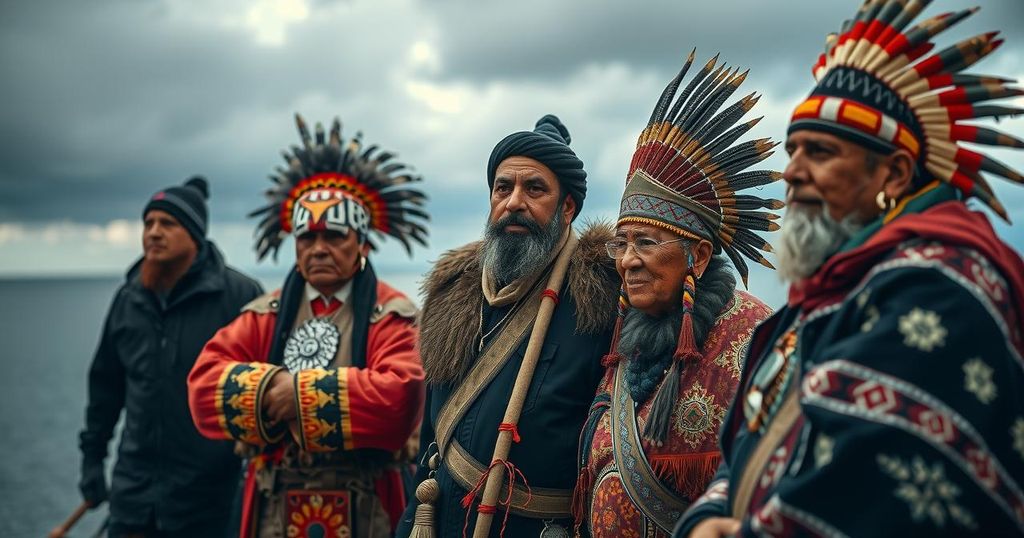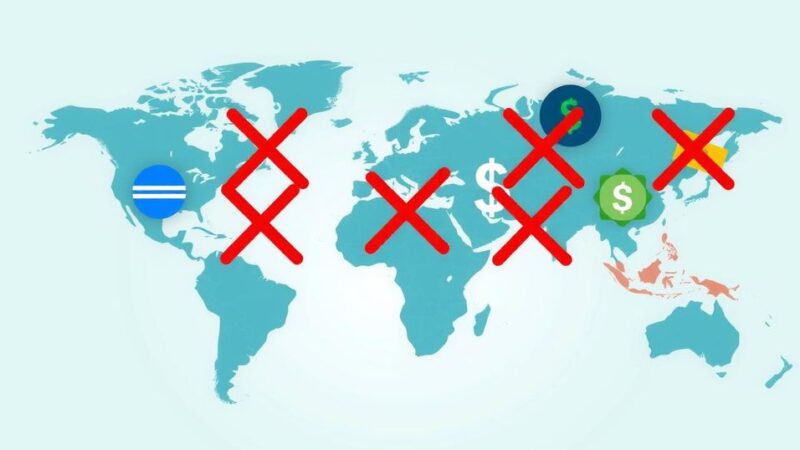Indigenous leaders from the Wampis Nation in Peru have arrived in the U.K. to advocate for a ban on international banking support for oil activities harming their ancestral rainforests. They highlighted significant oil leaks from Petroperu’s pipeline, stressing the pollution of their fishing waters, and are pressing for legal reforms to prevent corporate environmental abuses and protect indigenous rights.
Indigenous representatives from the Wampis Nation in Peru have traveled to the United Kingdom to advocate for legislative action that would prevent international banks from financing oil-related activities detrimental to the Amazon rainforest. Key leaders, Pamuk Teófilo Kukush Pati and Tsanim Evaristo Wajai Asamat, are raising concerns over the detrimental effects of oil leaks on their traditional lands, particularly emphasizing the pollution of their fishing waters caused by operations of Petroperu, a state-owned oil company financed by notable banks including HSBC, JPMorgan Chase, and Santander.
The leaders highlighted their longstanding commitment to conserving their environment for over 7,000 years, yet they stress that recent corporate activities have left their communities in precarious situations. With 89 reported oil leaks from a critical pipeline, predominantly attributed to criminal misconduct and natural causes, they underscore the need for stricter oversight on the financial institutions supporting environmentally harmful practices.
Further complicating the situation, the bond prospectus for a refinery project noted potential adverse financial implications for those involved, linking the adverse effects of oil spills directly to indigenous and local communities. This has led to protests and increased scrutiny of Petroperu, especially following penalties imposed by Peruvian regulators for environmental violations. The Wampis, along with other indigenous delegations, are lobbying for laws that would criminalize harmful practices by British businesses abroad.
In their meetings with U.K. officials, they shared challenges, such as illegal logging and mining, while advocating for action against corporations that exploit natural resources in a manner that contravenes human rights and environmental standards. Such negotiations reflect a growing acknowledgment of the intersection between corporate responsibility and indigenous rights at a global level.
The situation faced by the Wampis Nation is indicative of broader environmental and rights-based issues arising from the exploitation of natural resources in the Amazon. Historically, indigenous communities have fought to sustain their environments amid increasing pressure from mining, logging, and oil activities. This particular scenario highlights the complex interplay between multinational corporations, government policies, and the rights of indigenous peoples, often leading to significant environmental degradation and social disruptions. The involvement of prominent financial institutions in funding projects that contribute to these issues has prompted calls for greater accountability and legal frameworks that protect both the environment and indigenous rights.
The visit of the Wampis leadership to the U.K. underscores a critical intersection of environmental justice and indigenous rights advocacy. Their pleas for legislative reforms highlight the urgent need for international banks to consider the broader implications of their financial engagements, particularly in sensitive ecological regions like the Amazon. As more voices join this call for accountability, the attention garnered may lead to significant changes in how corporate practices are regulated, especially regarding their impact on vulnerable communities and ecosystems.
Original Source: apnews.com






